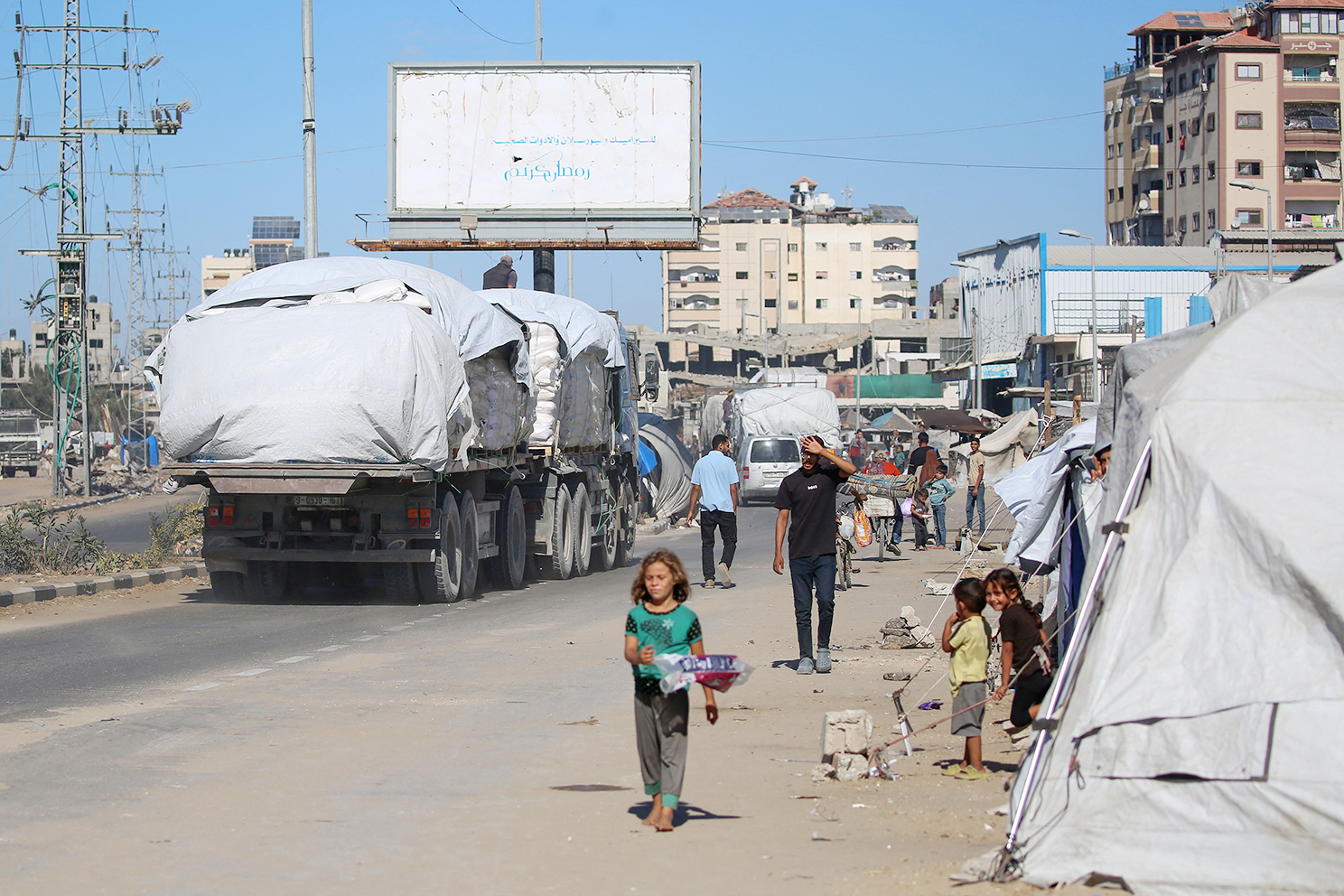World
Israel Confirms Body from Hamas Not a Hostage Amid Tensions

Tensions escalated on Wednesday as the Israeli military announced that one of the bodies handed over by Hamas does not belong to an Israeli hostage. This development complicates the delicate truce that has temporarily halted hostilities in the region.
According to the Israeli military, forensic tests confirmed that “the fourth body handed over to Israel by Hamas does not match any of the hostages.” The identity of the body remains unknown. This situation arises as both parties navigate the terms of a ceasefire agreement, which has already seen the return of several bodies and hostages.
In a parallel development, the Gaza Health Ministry reported receiving 45 additional Palestinian bodies from Israel, raising the total to 90 returned for burial. A forensics team examining these remains noted signs of mistreatment, complicating the already tense atmosphere surrounding the truce.
As part of the ongoing negotiations, Hamas released four bodies of hostages on Tuesday, following a previous transfer of four on Monday. Israel is still awaiting the return of the bodies of 28 hostages, with the situation remaining fluid.
The Israeli military stated that there is an expectation of further body transfers, but officials have not disclosed how many remain in custody. The origins of these remains are unclear, whether they are from deceased Palestinians in Israeli custody or bodies taken from Gaza by Israeli forces. Throughout the conflict, the military has exhumed bodies in search of hostages.
“There are signs of torture and executions,” Sameh Hamad, a commission member at Khan Younis’ Nasser Hospital, reported to The Associated Press.
He noted that some bodies were found still shackled and showed signs of abuse.
The Health Ministry shared images of 32 unidentified bodies to assist families in recognizing missing relatives. Many of the remains appeared decomposed or burned, with some lacking limbs or teeth. Due to Israeli restrictions on DNA testing, morgues have relied on physical features and clothing for identification.
Israeli Prime Minister Benjamin Netanyahu has emphasized that Israel will not compromise on the conditions of the ceasefire regarding the return of hostages’ bodies. “We will not stop our efforts until we return the last deceased hostage,” he stated firmly.
The ceasefire plan, introduced by U.S. President Donald Trump, initially called for all hostages—living or deceased—to be handed over by a set deadline that expired on Monday. If this did not occur, Hamas was required to provide information about deceased hostages and make efforts to return them as soon as possible.
This incident is not unprecedented; a previous exchange during a ceasefire saw Hamas mistakenly return the bodies of individuals who were not hostages. In one instance, testing revealed that a body identified as a hostage was, in fact, that of a Palestinian woman.
As the situation remains complex, Hamas spokesperson Hazem Kassem claimed that the group is striving to return the bodies of hostages as per the terms of the agreement. He also accused Israel of breaching the ceasefire by conducting shootings in eastern Gaza City and Rafah.
In a related humanitarian effort, the World Food Program announced that trucks delivering aid have begun arriving in Gaza after a two-day pause due to the exchange of bodies and the observance of a Jewish holiday. Aid deliveries are part of the ceasefire arrangement, but Israel indicated that it would reduce the number of trucks allowed into Gaza, citing delays in the return of hostages’ bodies.
Abeer Etefa, a spokesperson for the World Food Program, expressed cautious optimism regarding aid deliveries, stating, “We’re hopeful that access will improve in the coming days.” Meanwhile, the Egyptian Red Crescent reported that 400 trucks carrying food, fuel, and medical supplies were en route to Gaza.
U.N. humanitarian chief Tom Fletcher reiterated that withholding aid from civilians should not be used as a bargaining chip in negotiations. As the conflict continues, the humanitarian situation remains dire, with thousands of people reported missing and the death toll rising.
The ongoing conflict has resulted in nearly 68,000 Palestinian deaths, according to the Gaza Health Ministry. The ministry’s casualty records, seen as reliable by U.N. agencies and independent experts, highlight the severe human cost of the ongoing hostilities.
As the situation evolves, the focus remains on the return of hostages and the broader implications of the ceasefire agreement.

-

 Science1 month ago
Science1 month agoUniversity of Hawaiʻi Leads $25M AI Project to Monitor Natural Disasters
-

 Science2 months ago
Science2 months agoInterstellar Object 3I/ATLAS Emits Unique Metal Alloy, Says Scientist
-

 Science2 months ago
Science2 months agoResearchers Achieve Fastest Genome Sequencing in Under Four Hours
-

 Business2 months ago
Business2 months agoIconic Sand Dollar Social Club Listed for $3 Million in Folly Beach
-

 Politics2 months ago
Politics2 months agoAfghan Refugee Detained by ICE After Asylum Hearing in New York
-

 Business2 months ago
Business2 months agoMcEwen Inc. Secures Tartan Lake Gold Mine Through Acquisition
-

 Health2 months ago
Health2 months agoPeptilogics Secures $78 Million to Combat Prosthetic Joint Infections
-

 Science2 months ago
Science2 months agoMars Observed: Detailed Imaging Reveals Dust Avalanche Dynamics
-

 Lifestyle2 months ago
Lifestyle2 months agoJump for Good: San Clemente Pier Fundraiser Allows Legal Leaps
-

 Health2 months ago
Health2 months agoResearcher Uncovers Zika Virus Pathway to Placenta Using Nanotubes
-

 Entertainment2 months ago
Entertainment2 months agoJennifer Lopez Addresses A-Rod Split in Candid Interview
-

 World2 months ago
World2 months agoUS Passport Ranks Drop Out of Top 10 for First Time Ever








